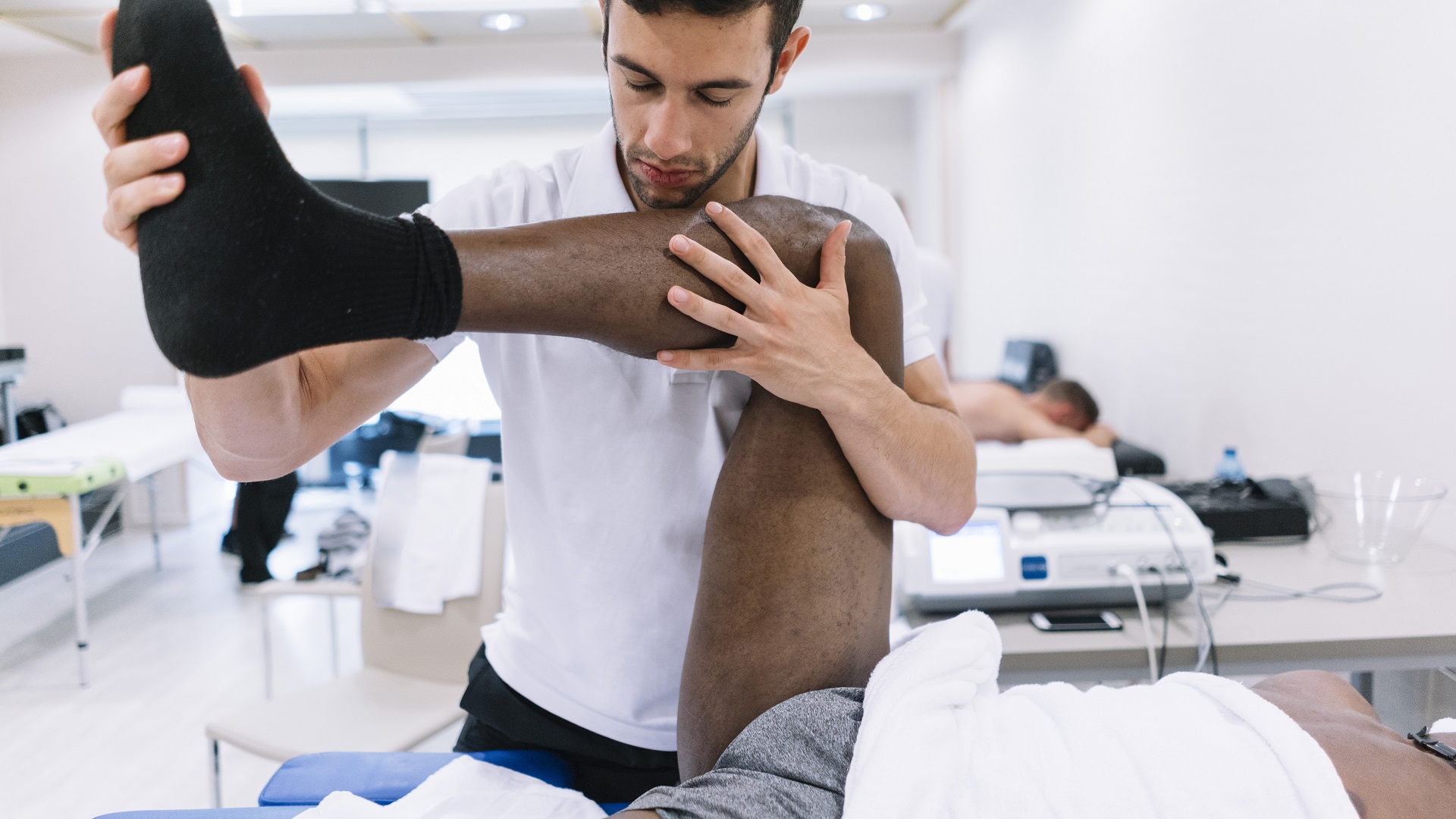Sports medicine is a specialized field of healthcare focused on physical fitness, treatment, and prevention of injuries related to sports and exercise. It holds a pivotal position in the health and fitness industry by helping athletes and active individuals achieve optimal performance, recover from injuries more efficiently, and prevent future injuries through specific care and rehabilitation programs. Combining medical knowledge with physical training, diet, and lifestyle management ensures comprehensive care for those engaged in physical activity at all levels.
Roles and Responsibilities of Sports Medicine Doctors
Sports medicine doctors are highly specialized medical professionals who manage the health and well-being of athletes and physically active people. They provide a wide range of care, from injury prevention and education on proper exercise techniques to the timely diagnosis of acute and chronic sports-related injuries. They develop effective treatment plans that may include medication, surgery, or other interventions, and they oversee the rehabilitation process to ensure a safe and efficient return to physical activity. Additionally, sports medicine doctors collaborate closely with physical therapists, athletic trainers, and other healthcare providers to create rehabilitation programs to address injuries and target underlying issues to prevent recurrence. Their expertise extends to improving performance through nutritional advice and fitness assessments, making them integral to the care of athletes at all levels.
Common Injuries Treated in Sports Medicine
Sports medicine professionals treat a variety of injuries that athletes and active individuals commonly encounter, including:
- Sprains: Injuries to ligaments caused by stretching or tearing, common in ankles, knees, and wrists.
- Strains: Injuries to muscles or tendons resulting from overstretching or tearing, often occurring in the back, neck, or legs.
- Fractures: Broken bones, which can range from severe breaks from direct impacts to stress fractures due to repetitive use.
- Concussions: Traumatic brain injuries from blows to the head or sudden movements, requiring careful management to prevent long-term damage.
Preventative Strategies and Performance Enhancement
Sports medicine doctors develop personalized conditioning programs and help improve athletes’ strength, flexibility, and endurance, effectively reducing the risk of injuries. Nutritional guidance supports training and recovery, optimizing overall health and performance. Additionally, sports medicine professionals often incorporate psychological techniques to boost mental resilience, focus, and motivation, recognizing the significant impact of mental health on physical performance. This strategy prevents injuries ensuring athletes can perform at their best level, combining physical preparation with mental toughness to achieve peak performance.
Innovations in Treatment and Rehabilitation
The field of
sports medicine has seen remarkable advancements in treatment and rehabilitation techniques, aimed at faster recovery and improved outcomes for athletes. Minimally invasive surgeries have become increasingly common, offering reduced recovery times and less post-operative discomfort compared to traditional open surgeries. Regenerative medicine, including therapies such as platelet-rich plasma (PRP) injections and stem cell treatments, is at the forefront of healing injuries by promoting the body’s natural healing processes. Additionally, personalized rehabilitation plans are meticulously crafted using the latest research and technology, like wearable devices and virtual reality, to tailor recovery programs to the specific needs and progress of each person. These innovations reflect a significant shift towards more efficient, less invasive, and highly personalized approaches to athlete care and recovery.
Sports Medicine for the Non-Athlete
Sports medicine extends its benefits well beyond the realm of professional athletes, offering valuable insights and care for recreational athletes and individuals keen on maintaining an active lifestyle. This branch of healthcare doesn’t discriminate by the level of activity; instead, it provides tailored advice on injury prevention, effective exercise techniques, and nutritional guidance to anyone looking to improve their physical health and wellness. For weekend warriors, fitness enthusiasts, or those integrating physical activity into their routine for health benefits, sports medicine offers strategies to safely increase activity levels, enhance performance, and reduce the risk of injury. It ensures that everyone, regardless of their athletic prowess, receives expert care in managing existing conditions, recovering from injuries, and adopting lifestyle changes that promote long-term health and fitness.
Working with a Sports Medicine Team
Working with a
sports medicine team means getting care and expertise from different healthcare experts all in one place for complete treatment. This collaborative effort often includes physical therapists who focus on rehabilitation and injury prevention, orthopedic surgeons who address structural injuries through surgery, and nutritionists who ensure dietary habits support healing and performance. Sports psychologists help manage the mental and emotional aspects of recovering from an injury and improving athletic performance. Together, a sports medicine team uses a holistic strategy for each person’s specific needs, whether they’re recovering from an injury, aiming to improve athletic performance, or seeking to maintain a healthy, active lifestyle.
Choosing the Right Sports Medicine Doctor
To find the best
sports medicine doctor for you, follow these suggestions:
- Verify Credentials: Ensure the sports medicine doctor is board-certified, indicating they have met rigorous standards in their field.
- Evaluate Specialties: Look for doctors specializing in your specific area of need, whether it’s a particular sport, injury type, or treatment method.
- Consider Experience: Choose a doctor with extensive experience in treating athletes or individuals with similar physical conditions and goals.
- Check Affiliations: Prefer doctors affiliated with reputable sports medicine clinics or academic institutions known for their contributions to sports medicine research and practice.
- Seek Recommendations: Get recommendations from other athletes, coaches, or healthcare professionals you trust for insights into a doctor’s competence and patient care style.
- Assess Communication Style: Ensure the doctor communicates clearly and listens attentively, making you feel comfortable discussing your concerns and treatment preferences.
Future Directions in Sports Medicine
The future of
sports medicine is on the brink of significant evolution, with personalized medicine developing treatments for individual genetic makeups, and wearable technology offering real-time physiological data to prevent injuries and enhance training.
Regenerative medicine, including stem cell therapy, is set to revolutionize injury treatment by accelerating natural healing, while artificial intelligence will improve diagnostics and recovery predictions. Advances in sports psychology will offer new mental conditioning techniques, ensuring athletes are mentally as well as physically prepared.
Sports medicine will continue to innovate in injury prevention, exploring biomechanics and developing safer sports protocols and equipment. This holistic, data-driven approach promises a future where sports medicine rehabilitates and optimizes the performance and well-being of athletes and active people through cutting-edge technology and care strategies.
Portland Wellness Care: Sports Medicine Doctors
At Portland Wellness Care, our
sports medicine doctors promote overall health, prevent injuries, and enhance quality of life for both athletes and those who lead physically active lifestyles.
Sports medicine practitioners ensure that everyone from professional athletes to weekend joggers receives the care and guidance needed to achieve their fitness goals safely.
They offer expert advice on injury prevention, provide immediate care for acute injuries, and design rehabilitation programs to facilitate a swift return to activity, minimizing risks of future injuries.
Sports medicine professionals work to optimize performance, helping people surpass their personal best while maintaining physical and mental well-being.
If you’re looking to prevent injuries, enhance your athletic performance, or simply lead a healthier, more active life, consult a sports medicine doctor at Portland Wellness Care. Our team of experts is dedicated to supporting your journey toward optimal health and peak performance.






